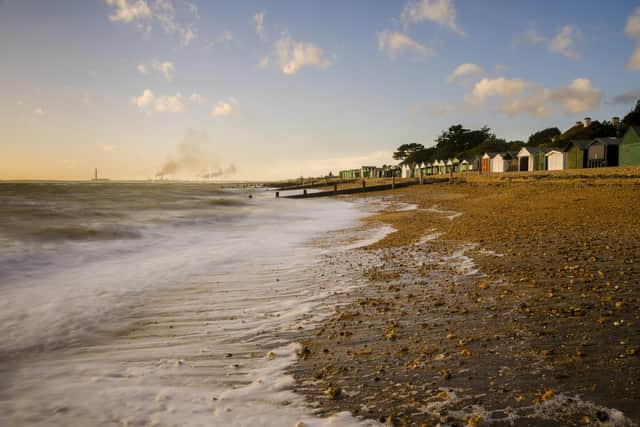Concerns new housebuilding rules will remove protections on Hampshire's waterways
and live on Freeview channel 276
Debbie Tann, the chief executive of Hampshire & Isle of Wight Wildlife Trust, said nutrient neutrality rules, which include protections covering the Solent, were a “cost-effective” way of allowing housebuilding while mitigating its environmental effects.
“We are very concerned that the government is considering removing or changing the nutrient neutrality requirement for new developments,” she said.
Advertisement
Hide AdAdvertisement
Hide Ad“Our precious rivers and coastal areas are facing untenable levels of pollution from agriculture, industry and domestic waste, with 82 per cent failing to reach good ecological status. We must have robust measures in place to start tackling this critical issue.


“Through our nutrient neutrality schemes, we have already proven a cost-effective way to unlock housebuilding while also mitigating the environmental impact of new developments – and those methods have the added benefit of helping people, communities and nature too.”
Writing on social media, she said the the trust was due to meet with Michael Gove this week to discuss its work in this area but that the meeting was cancelled on Friday (August 25). Dozens of council areas are subject to restrictions requiring them to provide evidence of mitigation strategies to allow homes to be built. According to the District Councils Network, 85,000 homes are on hold as a result. Efforts to mitigate damage to the Solent are managed through the Partnership for South Hampshire which oversees work on several sites across the region, including the rewilding of farmland.
Councillor Seán Woodward, the leader of Fareham Borough Council and the partnership’s chairman, said he was “proud” of this work.
Advertisement
Hide AdAdvertisement
Hide Ad“We have brokered an agreement with the [wildlife] trust which is now being adopted by councils across the area to bring about the rewilding of land which has been farmed intensively using high nutrient fertiliser application,” he said. “This approach is having a dramatic effect in lowering pollution while freeing nutrient credits to allow the building of much needed new homes.”
The trust said its rewilding of land that was previously intensively farmed reduced the amount of nitrates reaching the Solent while also encouraging greater biodiversity. It said its project at Wilder Little Duxmore on the Isle of Wight had led to a 47 per cent reduction in the soil’s nitrogen levels in less than two years.
The government formally progressed its plans to scrap the nitrogen neutrality rules on Tuesday (August 29) afternoon when it published an amendment to the Levelling Up bill going through parliament.